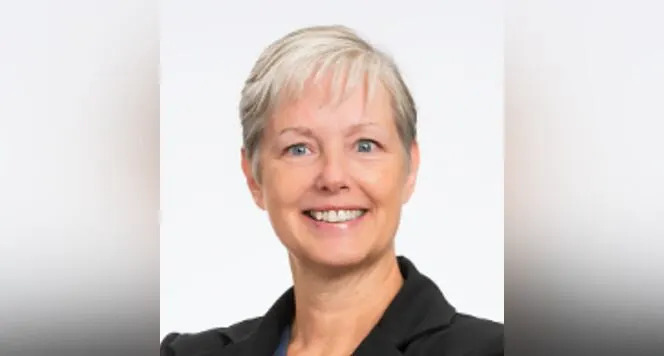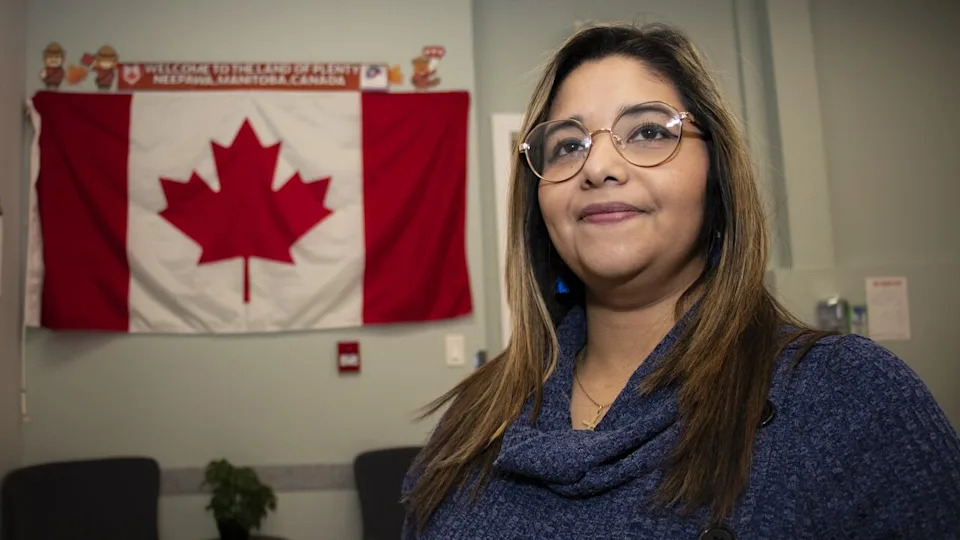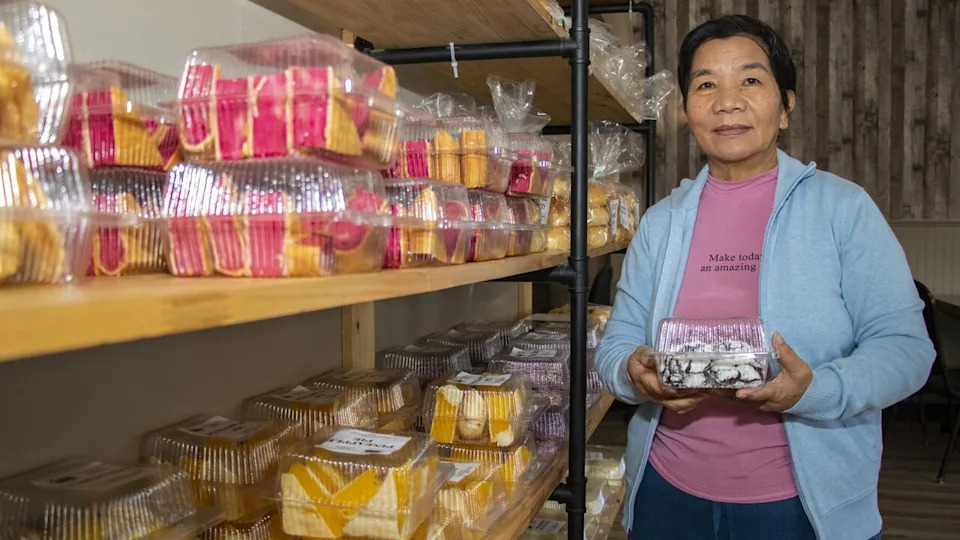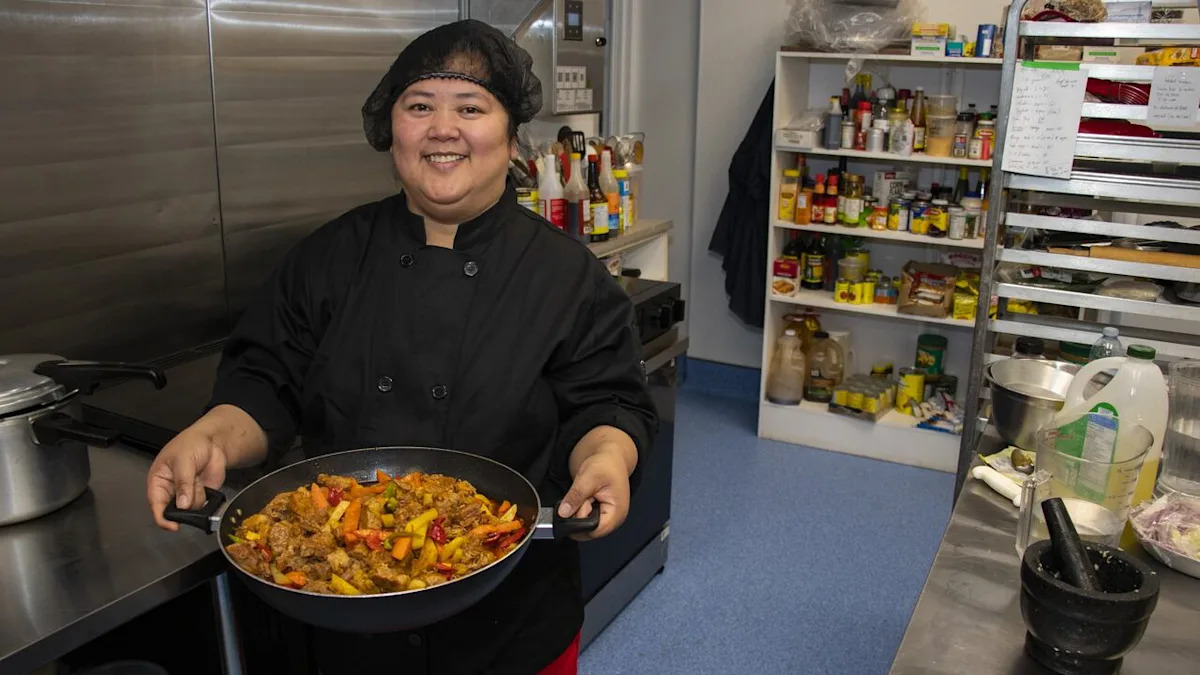A new Filipino restaurant in Neepawa is highlighting the town’s rapidly growing newcomer population and the strong cultural ties shaping rural Manitoba.
Catherine Vego, who is from the Philippines and came to the Neepawa area in 2014, opened Vego’s Home Pinoy Restaurant at the start of October, bringing a taste of her home country to the southwestern Manitoba town.
“I want them to feel like they’re just in the Philippines,” Vego said. “Everything that they miss.”
Neepawa has seen a dramatic demographic shift in recent years, led by Filipino newcomers. According to the 2021 Statistics Canada census, Neepawa had a total population of just under 5,700, more than half of whom — just over 2,900 people — were visible minorities. That included 2,600 who identified as Filipino.
That number has nearly doubled since 2016, when Neepawa had just over 1,600 Filipino residents, and a total population of about 4,600.
Marilyn Crewe, Neepawa’s economic development officer, said the number of newcomer businesses in the community has doubled in the last decade, with about 13 storefronts, roughly half of which are Filipino-owned.

(Submitted by Marilyn Crewe)
Many newcomers arrive through the temporary foreign worker program at HyLife Foods, a Manitoba-based company that has a pork-processing plant in Neepawa. It brings an estimated 200 workers a year to the community, many from the Philippines, said Crewe — recruitment that has fuelled Neepawa’s growth.
“It’s a gift for the community,” she said. “For Neepawa, it’s just been handed to us.”
Temporary workers can, after a period, apply for permanent residency. If successful, they can stay and build a new home in Neepawa, which creates opportunities for everyone, said Crewe.
Local businesses are also looking for new ways to help fill labour shortages and skills gaps through immigration, and Crewe helps employers find staff when they aren’t available in the small town.
“We see this opportunity then for entrepreneurship, to also help them,” Crewe said. “It’s part of what they see as becoming successful in Canada.”
In a statement, HyLife told CBC its current workforce includes a strong Filipino community, along with employees from other countries like Mexico.
“We are thrilled to see the positive growth in Neepawa,” and the company works with municipal and provincial officials “to ensure this progress benefits everyone and supports the long-term success of the region,” the statement said.

Neepawa and Area Settlement Services executive director Ilce Pineda says while Filipinos make up the majority of newcomers moving to the town, the area is also seeing people from Mexico, India, Ukraine and other countries. (Chelsea Kemp/CBC)
While the federal government has promised changes to immigration and temporary foreign worker programs, Crewe says she’s hopeful they’ll take into account how immigration helps smaller communities like Neepawa grow.
Meanwhile, the community’s growth has not been without challenges, she said.
There is a growing need for housing, education and daycare spaces. Crewe hopes entrepreneurs will step in to help fill some of these gaps.
Ilce Pineda, the executive director for the newcomer-support agency Neepawa and Area Settlement Services, said while Filipinos remain the majority of newcomers, people are also arriving from Mexico, India, Ukraine, Korea and other countries.
Newcomers are drawn to the town’s safety and welcoming atmosphere, Pineda said.
“As soon as you come here, you feel like you can try a little bit of everything, especially the food,” she said. “You feel that you’re in a family environment with the community.”
Feeding the community
Carmela Comila, who runs Lola’s Bakery with her family, came to Canada from the Philippines in 2004, and moved from Winnipeg to Neepawa in 2019.
The peaceful, family-oriented environment with a strong Filipino community makes Neepawa feel like home compared to bigger cities, she said.
“Especially in summer, when everybody’s outside, you can feel … like you’re in the Philippines, because you hear them speak Tagalog, you see … Filipinos and they eat Filipino foods.”

Carmela Comila, who runs Lola’s Bakery with her family, says Neepawa feels more like home than bigger cities. (Chelsea Kemp/CBC)
Restaurant owner Vego said Neepawa has transformed since she first arrived in 2014, and that demographic shift has offered a great opportunity to share Filipino meals with the community.
“Everywhere you look, there are a lot of Filipinos,” she said.
She’s lived in Gladstone, about 40 kilometres east of Neepawa, for the last four years, but she’s planning on moving back to be closer to her restaurant. But it can be tough to find housing.
At Vego’s Home Pinoy, business has been booming— she gets about 400 visits a day and up to 600 on the weekend, Vego said.
The restaurant serves Filipino classics alongside dishes like biryani rice, sushi and Korean noodles. On weekends, live music adds to the atmosphere, Vego said.
“Everyone is welcome,” Vego said. “I love cooking. Every time that I cook, I put my heart and my mind so that the food will make it good, and that people will come back.”
